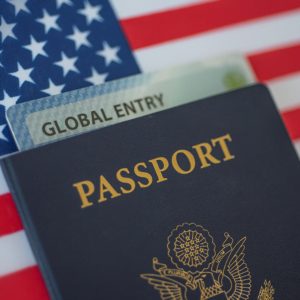Study and Exchange Visa in the USA
The F1 visa is a non-immigrant visa category designed for international students who wish to pursue academic programs or language training in the United States. It offers numerous benefits and opportunities for those looking to enrich their educational experience and career prospects.

Benefits of the F1 Visa
- Access to Diverse Educational Opportunities: Holders of an F1 visa can enroll in a wide range of academic programs at accredited U.S. institutions, from undergraduate and graduate degrees to language courses and vocational training.
- Work Opportunities: F1 visa holders can work on-campus part-time during the academic year and full-time during school breaks, providing valuable practical experience and financial support.
- Optional Practical Training (OPT): After completing their studies, F1 students may be eligible for OPT, allowing them to work in their field of study in the U.S. for up to one year (or longer for STEM graduates), enhancing their professional skills and gaining real-world experience.
- Cultural Exchange: Studying in the U.S. offers a rich cultural exchange experience, allowing students to interact with peers from diverse backgrounds, participate in community activities, and explore American culture.
Steps to Obtain an F1 Visa
- Apply and Get Accepted: First, apply and gain acceptance to a Student and Exchange Visitor Program (SEVP)-approved institution in the United States.
- Receive Form I-20: Once accepted, the institution will issue a Form I-20, Certificate of Eligibility for Nonimmigrant Student Status, which you will need to complete your visa application.
- Pay the SEVIS Fee: Before applying for a visa, pay the SEVIS (Student and Exchange Visitor Information System) fee and keep the receipt as proof of payment.
- Complete the DS-160 Form: Fill out the DS-160 online visa application form and upload a passport-sized photograph meeting the specific requirements.
- Schedule and Attend an Interview: Schedule an interview at the nearest U.S. embassy or consulate. Be prepared to discuss your academic plans, ties to your home country, and financial resources to support your education in the U.S.
- Pay the Visa Application Fee: Pay the non-refundable visa application fee before your interview.
- Attend the Interview: Bring all required documents, including your Form I-20, DS-160 confirmation page, passport, visa application fee receipt, SEVIS fee receipt, academic transcripts, standardized test scores (if applicable), and proof of financial support.
- Receive the Visa Decision: After the interview, you will be informed if your visa application is approved, denied, or requires further administrative processing.
Importance of Hiring an Immigration Attorney
Navigating the F1 visa application process can be complex, and having an immigration attorney specializing can significantly streamline the process and increase your chances of success. An experienced attorney can:
- Provide Guidance: An attorney can explain the eligibility requirements, help you gather the necessary documentation, and ensure that your application is completed accurately and timely.
- Navigate Challenges: If your application faces complications or additional scrutiny, an attorney can navigate these challenges and provide legal strategies to address any issues.
- Maximize Opportunities: An attorney can advise on optional practical training (OPT) opportunities, extensions, change of status, and other legal options available to F1 visa holders.
Investing in professional legal assistance ensures that you approach the F1 visa process with confidence and clarity, focusing on your academic goals and future prospects in the United States.
SHARE






